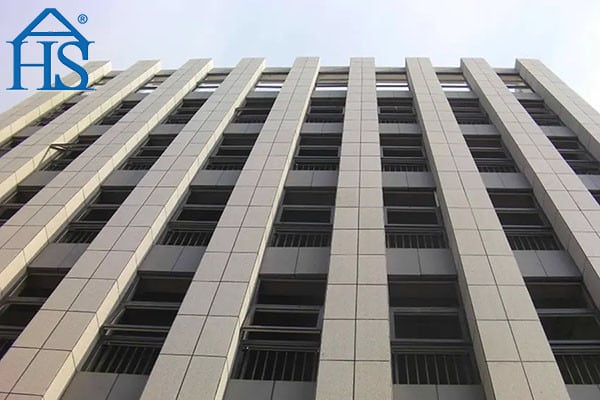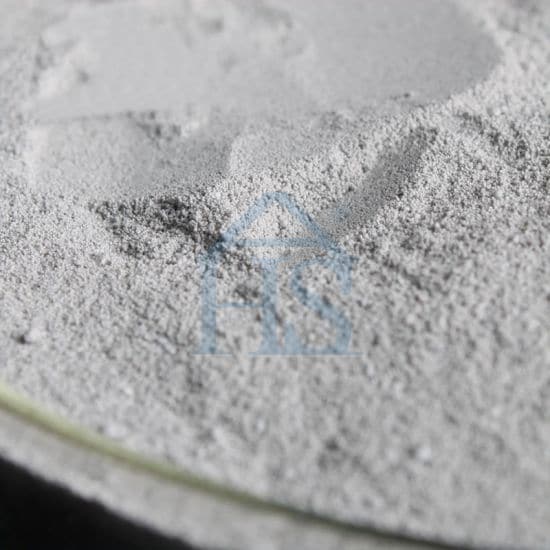mikrosilika is widely used in the fields of construction, kimya ve refrakter endüstrileri. Mikrosilikanın güçlü volkanik kül aktivitesi olduğundan, güçlü su salgısı, small particle size and large specific surface area, vb., it can be mixed in concrete to improve the durability of concrete. Bu yüzden, what is the effect of microsilica on the durability of concrete?
Impermeability
On the concrete material itself, the ability to resist the permeability of various media depends mainly on its internal pore structure and interface properties, of which the higher the volume ratio of harmful pores to the total pores, the more unfavorable to media permeability. For ordinary concrete, when the water-cement ratio exceeds 0.6, the permeability of concrete grows sharply, while for the water-cement ratio of less than 0.4 Somut, it can be considered basically impermeable. For high-performance concrete mixed with a certain amount of microsilica, the water-cement ratio is usually less than 0.4 and filled with ultra-fine particles, so the high-performance concrete mixed with microsilica has a very good impermeability. Because of the small particles of microsilica, 20 ile 100 times smaller than the cement particles, can fill the gaps in the middle of the cement particles, so that the concrete is dense, while the secondary hydration of microsilica, the new generation of blocking the permeation channels in the concrete, so the microsilica concrete has a very good impermeability.
Chemical erosion resistance
The addition of microsilica can significantly reduce the permeability of concrete and reduce the free Ca (AH) 2, thereby improving the ability of concrete to resist chemical erosion. Incorporating microsilica in concrete can reduce Ca(AH)2 içerik, increase concrete compactness and effectively improve weak acid corrosion ability. Ek olarak, it can also resist salt corrosion, especially for chloride salts and sulfates, the reason why it can resist acid and salt erosion, the reason is that microsilica concrete is denser, the pore structure is improved, thus reducing the rate of transfer of harmful ions, reducing the generation of soluble Ca(AH)2 and calcium alumina.
Anti alkali aggregate reaction
Alkali aggregate reaction must have three conditions: the aggregate in the concrete is active; the concrete contains a certain amount of soluble alkali; there is a certain amount of humidity. Exclude any of these three conditions can achieve the purpose of controlling the alkali aggregate reaction. The addition of microsilica in concrete, because the microsilica particles improve the compactness of cementitious materials, reducing the speed of movement of water through the slurry, making the alkali aggregate expansion reaction requires less water, but also due to reduce the concentration of alkali ions in the cement slurry pore liquid, öyleyse, reducing the risk of alkali aggregate reaction.
Resistance to reinforcement corrosion
The high alkalinity of concrete provides conditions for the formation of passivation film for the reinforcement in ordinary reinforced concrete. Once the passivation film is destroyed, electrochemical corrosion of the reinforcement occurs, and the rate of corrosion depends on the rate of moisture as well as oxygen entering the concrete. The addition of microsilica improves the compactness of the concrete increasing the resistivity, so the resistance to reinforcement corrosion is greatly improved. Microsilica improves the resistivity is increased with the increase of microsilica content.
Aşınma direnci
The addition of microsilica improves the anti-abrasive properties of concrete is due to the improvement of the slurry’s own anti-abrasive properties and hardness, as well as improve the bonding of cement paste aggregate interface, so that the coarse aggregate is difficult to be eroded when subjected to abrasive action. Microsilica doped anti-abrasive concrete with no microsilica doped concrete compared to the general anti-abrasive ability can be increased by about 1 zamanlar, anti-cavitation ability can be increased by more than 3 zamanlar. The general anti-cavitation ability to improve the multiplier is greater than the anti-punching ability to improve the multiplier. Microsilica yield is generally taken 8% ile 10% is appropriate, when the microsilica concrete anti-abrasion.
Frost resistance
The addition of microsilica in the concrete can also effectively improve the frost resistance of concrete. Mikrosilika beton sonrasında 300 ile 500 hızlı donma-çözülme döngüleri, the relative dynamic modulus of elasticity reduced by 1-2%, while ordinary concrete only through 25 ile 50 döngüler, the relative dynamic modulus of elasticity reduced by 36% ile 73%.





